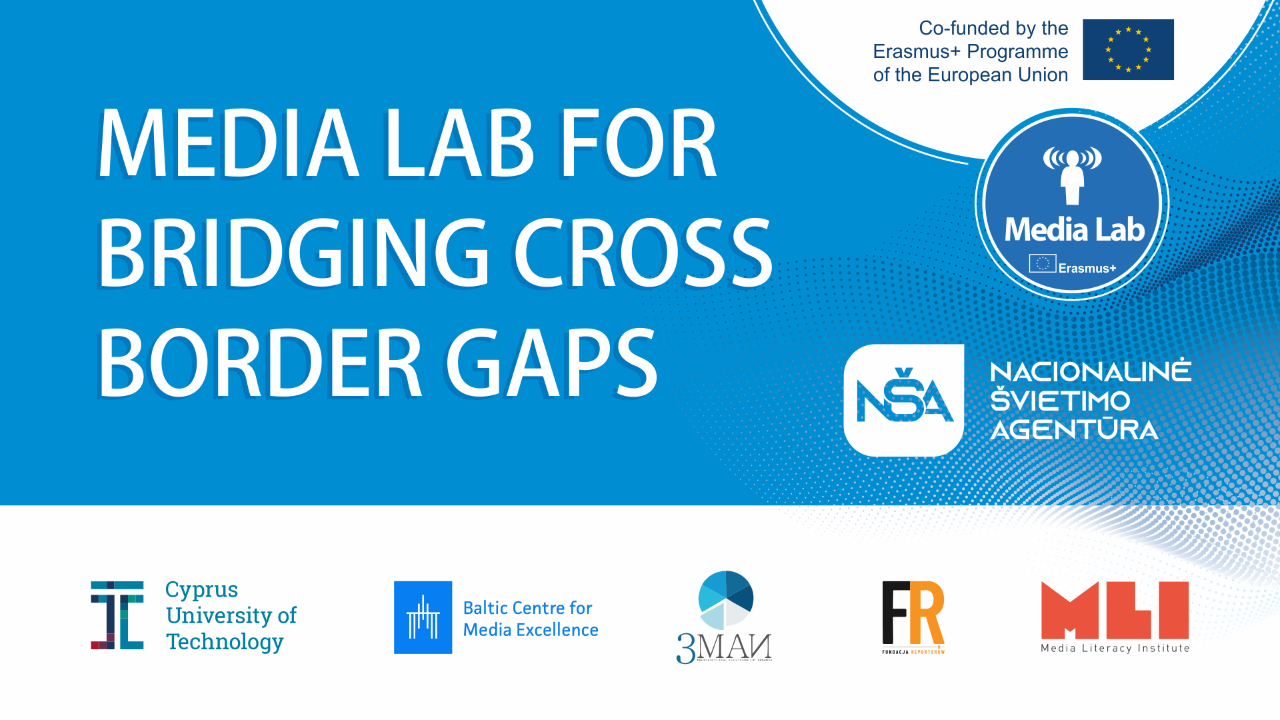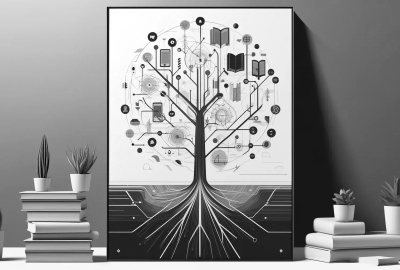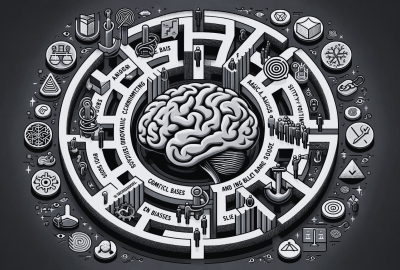Media Literacy
Erasmus+ KA2 Project “Media lab for bridging cross border gaps”

Erasmus+ KA2 Project “Media lab for bridging cross border gaps”
Project number 2018-1-LT02-KA205-005715
Project is strengthening cross-sectorial cooperation (NGO and governmental representatives, journalists) allowing for greater synergies across all fields of actions (training, teaching, informing, etc.) raise media literacy among young people. Implemented project activities supporting quality improvement in youth work.
Project activities targeted for enhancing their critical thinking (to be able to question, challenge, evaluate the meaning and purposes of written, visual and oral material and use it accordingly) and visual savviness (to be able to identify information, including visual messages, analyze it, evaluate its quality and use it accordingly). Prepared digital suitcase of learning tools for youngsters on media literacy offers open education and innovative practices in a digital era.
Organized trainings and multiplier event enhance the international dimension of youth activities and enhance the capacity of youth workers and organizations in their support for young people in complementarity with the European Union's external action, in particular through the promotion of mobility and cooperation between stakeholders from 6 countries organizations.
Intellectual Outputs were prepared:
1. Digital “suitcase” of learning tools for youngsters on media literacy: 10 on – line learning tools translated into project partner languages and English with added captions to them; 3 short videos on factchecking; labels for tools and videos with useful information how to use it in practice (when, for what target group of youngsters, what questions to raise for the discussion, etc.).
2. Analysis and recommendations on existing cross border gaps: not less than 6 existing cross-border gaps on media literacy will be analyzed (what kind, it’s scope, which ones are crucial, how it affects local realities in development of media literacy of youth, etc.), with very specific focus on youth; out of made analysis, recommendations for policy makers, journalists, youth workers, trainers, educators and other practitioners will be made.
3. Tool-kit for impact assessment: asses implemented measures (tools, videos, training's, etc.) addressed educating youth critical thinking through media literacy; not less than 15 different assessment measures (quantitative and qualitative; tools, methods, questionnaires, etc.) will be prepared to help evaluate efficiency of implemented measures.
Short-term join staff training event will be organized:
1. Training ”Better cross – border understanding of disinformation, propaganda and fake news”: duration – 6 days; 5 participants from each partner country, total number of participants – 30 (location – Macedonia).
2. Training “Educating critical thinking of youth through media literacy in local communities”: duration – 6 days; 5 participants from each partner country, total number of participants – 30 (location – Poland).
3. Training “Efficient planning and implementation of interventions for critical thinking of youth through media literacy” (C3): duration – 6 days; 5 participants from each partner country, total number of participants – 30 (location – Lithuania).
4. Multiplier Event will be organized. Conference for experienced communication professionals, working in the field of media literacy for youth: total number of participants – 80; location – Poland.
Project coordinator: National Agency for Education, Vilnius, Lithuania
Participating countries: Latvia, Lithuania, Poland, Cyprus, Greece, the Republic of North Macedonia
Duration of the project: 2018-2020
Funds allocated to the project: EUR 179 779.00, funded by Erasmus+ program
Contact person: project manager Salomėja Bitlieriūtė, e-mail salomeja.bitlieriute@nsa.smm.lt tel. +370 5 277 2840
More information: here

Media Literacy
Influential and sustainable? Lessons learned from research on media literacy projects in Latvia
Influential and sustainable? Lessons learned from research on media literacy projects in Latvia

Media Literacy
Cognitive Biases and Logic Pitfalls: Behind Reasoning and Decision-Making
Cognitive Biases and Logic Pitfalls: Behind Reasoning and Decision-Making

Media Literacy
Mindfulness Online: Your Guide to Digital Well-Being
Mindfulness Online: Your Guide to Digital Well-Being